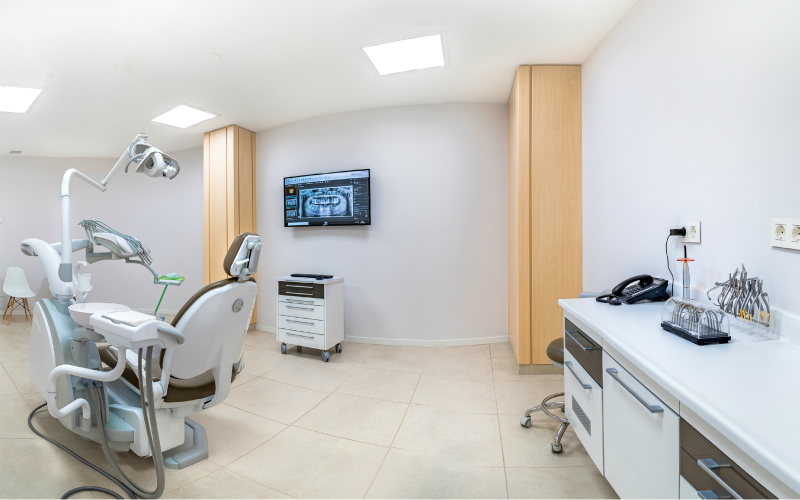
Selling a dental practice is the culmination, in most cases, of a life’s work. A retiring dentist is likely to have built the practice up over decades, and so it is only right that they achieve the best outcome possible. Aside from valuing the practice, one big question is who the buyer is going to be?
Many of our dental clients who have decided to sell their practice eventually sell to one of the corporate groups, or at least have offers from them as part of the marketing process. in other cases, our client is approached directly by one or more of the corporates and ends up doing a private deal with them.
A sale to a corporate doesn’t suit everyone, and for some they would never consider proceeding in that way. However, for others the structure which comes with a sale to a corporate fits the bill and could be exactly what they want. So what might be involved from a seller’s perspective?
Firstly, and rather obviously, the price is important. The same goes for any sale, but the corporates have their own financial models which they use to value a practice, and so arriving at the right numbers for you is clearly going to be a key factor in your decision whether to proceed.
Alongside that, a sale to a corporate more often than not involves a slightly more involved payment structure. Most sales to an individual dentist will result in the whole price being paid up front at day one. However, corporates tend to have a structure which involves payment of a proportion of the price at day one, with a balance paid at a later date. Sometimes those deferred payments will be linked to certain targets being met in future years, such as turnover targets, in others they are linked to the seller remaining as an associate with the practice for a period after the sale completes. Each corporate is different, and they may vary their approach from practice to practice.
Having some of the price paid at a later date may not be ideal for some, but it is generally a case of evaluating the terms in detail, gauging the risk of the future payment not being forthcoming, and comparing the deals on offer from any other buyers.
This sort of structure can be perfect for someone not wishing to retire completely and who is happy to continue to work as an associate for a few more years. That way they can work to achieve whatever targets have been set by the buyer, whilst at the same time continuing to earn an income. Do think through whether the change from being the boss in your own practice to working in it will suit you though, that change of dynamic is something which some sellers struggle with.
It is also very important to understand the tax liabilities which will arise from such a deal. Deferring parts of the price doesn’t necessarily mean that some of the tax bills are delayed, so make sure that you liaise with your accountant so that you don’t get any nasty surprises.
So if you decide to sell to a corporate, what should you expect from the sale process? Is it the same as selling to an individual dentist? Well in broad terms it is the same, as the legal and accounting steps aren’t significantly different. However, there are some key areas where the process is slightly different, and which we always flag up to our selling clients.
First of all, there is the diligence process, where the buyer seeks certain information and documentation from the seller. All corporate buyers have specific and fairly detailed diligence requirements, and whilst the subject areas covered are fairly standard, you will require to provide more detail than would be required by an individual buyer. That does make the process more time consuming, and is something which you simply have to accept – trying to short circuit the process just won’t work sadly.
The legal documentation involved in a sale to a corporate tends to be a fair bit more detailed and lengthy than would be the case selling to an individual buyer, although again in broad terms it will cover similar areas. You should expect a bespoke Business Purchase Agreement (or Share Purchase Agreement if you are selling your company) to review and for your lawyer to negotiate on your behalf. Ideally, your lawyer will be familiar with such sales and will be able to guide you through the key issues to get the best detailed terms from your perspective.
Finally, many of the corporates don’t wish to buy premises. Their focus is on investing in practices, and not spending their cash on bricks and mortar. Some of them have connections with other companies who might be willing to buy the premises from you separately, but in general you may need to accept that you have to retain the building and lease it to the buyer.
So the big question for a prospective seller, should I consider a sale to a corporate or not? The simply answer is go with what matches your aspirations. If the structure of any deal (corporate or otherwise) doesn’t suit you, then the answer is simple. But if it ticks the boxes, then with the right advice, you can make a corporate deal work for you.
Michael Royden is a Corporate Solicitor specialising in advice to the dental profession. We are always delighted to talk without obligation about whether we might meet your needs. Call Michael on 03330 430350 or email mroyden@thorntons-law.co.uk
